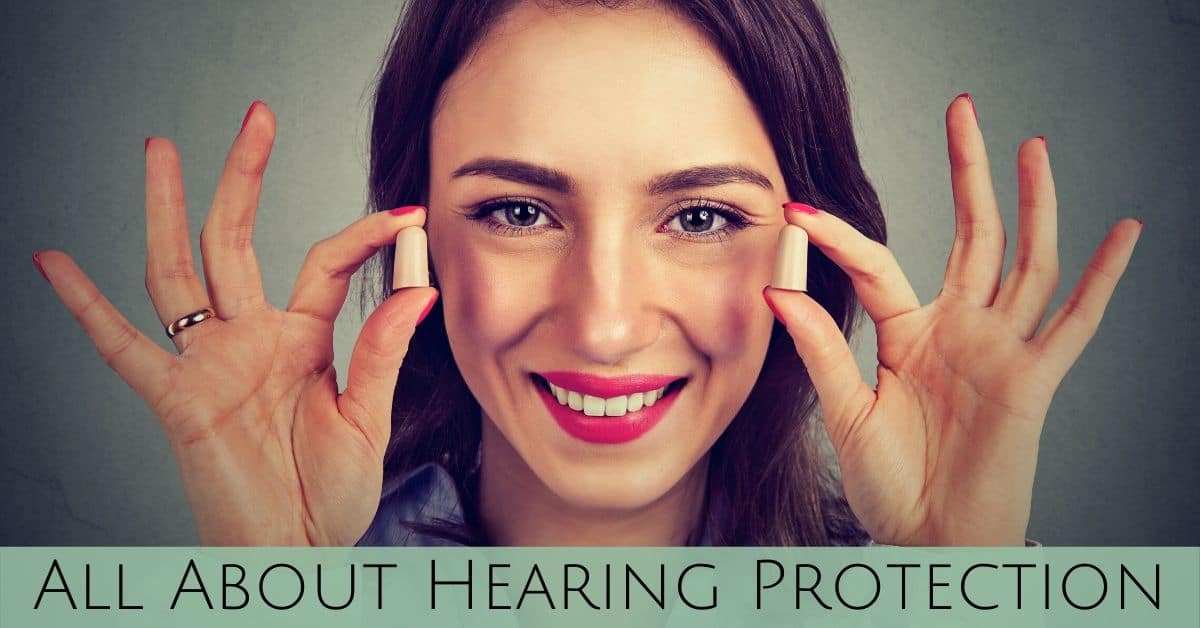Today we are exposed to more noise at home, on the streets and at work than ever before. While cities and suburbs grow louder, we must make a conscious effort to protect our ears if we want to maintain healthy hearing for years to come. If you haven’t thought about protecting your ears, it is still not too late. The problem is that once the damage is done there is no going back to regaining the hearing you may have lost. Not only can loud and constant noise lead to hearing loss but also the associated health risks are best to avoid.
The Importance of Protection
We cannot close our ears like we can our eyes. When we are exposed to harmful levels of noise our ears can suffer, causing the delicate inner ear to sustain irreparable damage. Sounds at or below 70 dB are generally considered safe, while sounds that surge to 85 dB and beyond are likely to damage your hearing and conglomerate over time. The longer you are exposed to harmful decibels of noise the worse the danger becomes. While a one-time exposure to 85 dB may not hurt your ears, in instances where you are exposed for 8 hours in the instance of a normal workday to harmful noise, can cause serious cases of hearing loss. This is why hearing protection is so important. If you work in a noisy environment day in and day out your hearing must be protected.
Excess Noise and its Effect on Overall Health
While a night out attending a concert, sports event or dance club can often become a cherished memory these experiences can often lead to damage to your fragile ears if you don’t utilize protection. It is just not special occasions that put your ears at risk. Depending on your profession, every day at work can be a moment of danger for your ears if you do not wear hearing protection. This does not only include trades where loud machinery is present. Even the sound of constant voices in a loud office environment can create a constant decibel range loud enough to damage your hearing over time.
Persistent noise not only damages our ears, but our entire body. When our hearing is damaged it is hard for us to participate in conversation. This can damage our relationships at home and at work. It often becomes more tempting to stay home and out of conversations rather than participating in situations we struggle in. This strain can lead to anxiety, depression and loneliness, said to be more harmful to our overall health than smoking 15 cigarettes daily. Further consequences of exposure to high decibels of noise can include concentration problems, impaired performance; sleep problems, high blood pressure and even cardiovascular disease.
Strategies for protecting your hearing
People should wear a hearing protector if the noise or sound level at the workplace exceeds 85 decibels. Hearing protectors reduce the noise exposure level and the risk of hearing loss. While this can make a world of difference a work environment is not the only place you should be prepared to protect you hearing. It is important to keep your personal listening devices turned down to no more than 60% of the available volume and limit the listening time to ensure your ears can get a break.
Another strategy to reduce dangerous noise levels is to limit parallel source of noise, including music during conversation, multiple conversations at once and running loud electrical appliances. While every now and then will not be a problem this kind of racket daily can put your hearing in danger. When you do have the option, stay as far as you can from a noise source.
Wear Hearing Protection
Whether you are doing something noisy at work or for fun, make sure to wear hearing protection. While ear muff style hearing protection provides the most protection for your ears and should be utilized whenever a sound is very loud, earplugs can help protect your ears in less acute situations. Hearing is one of our most important senses that allows us to communicate and connect. Don’t take your hearing for granted and invest in hearing protection so you can make sure to hear healthy for years to come.

